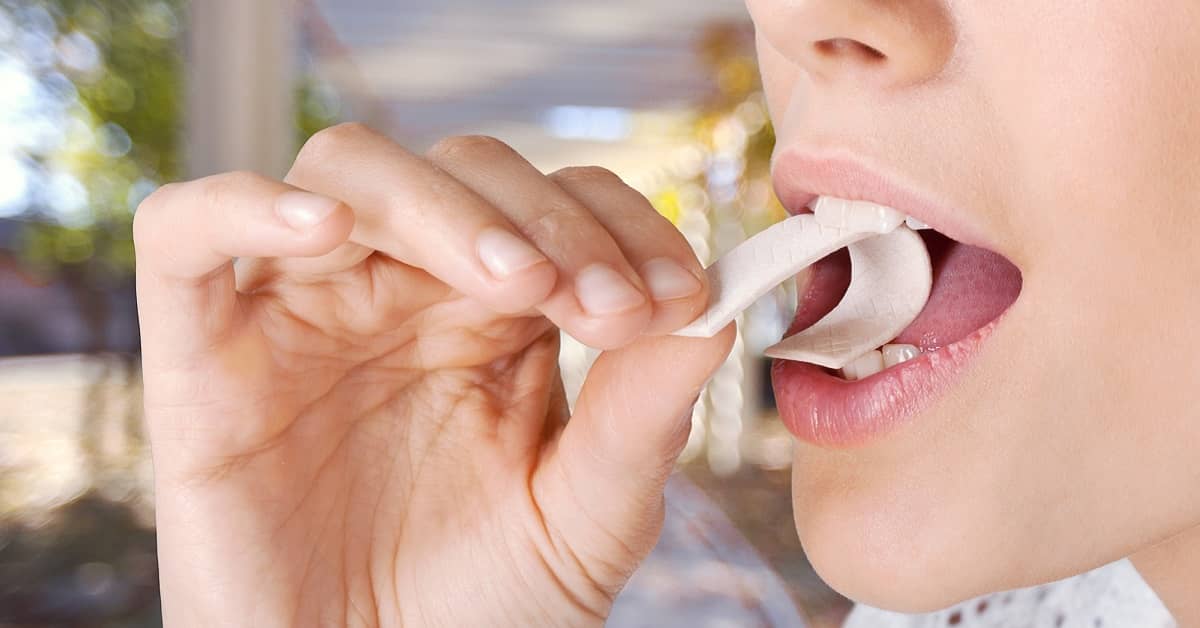
Can the simple act of chewing be the secret to preserving your brain health? With dementia rates climbing in an aging population, experts are uncovering a fascinating link between chewing and cognitive function.
Key Takeaways
Super-Agers and Memory Strength
One of the fastest growing ‘super-aged’ societies in the world is Taiwan. By 2026, over 20 percent of the population in Taiwan is expected to be over 65.
This senior surge will drive medical costs skywards, especially the cost of caring for dementia patients. It’s why Taiwan launched a new brain-healthy initiative late last year to help tackle the issue. Its name translated into English is "Happy Chewing, Healthy Aging."
Are they on to something? Let’s take a closer look at the fascinating science on chewing and brain health.
Chew for a Bigger Brain
The initiative encourages older adults to improve their oral health by eating crunchy, nutritious food, practicing oral hygiene, and performing oral exercises. In what might be the strangest recommendation, Taiwanese medical authorities are advising seniors to chew sugar-free gum to prevent dementia.
The catalyst for this initiative comes from a study carried out by Yang-Ming University School of Dentistry led by Professor Hsu Ming-lun.
The dentists compared 40 people over age 65 with either mild cognitive impairment (MCI) or Alzheimer's to a control group of 30 healthy people. The researchers gave these participants brain scans and assessed their teeth and chewing ability.
Among the controls, increased chewing ability was linked to larger grey matter volume in the premotor cortex of the brain, which helps to control muscle movement.
In the MCI/Alzheimer's group, those with the poorest chewing ability had less total grey matter volume in the brain. Regional grey matter was smaller in the left medial temporal lobe, including the left hippocampus and parahippocampus -- all key areas for memory.
In essence, the researchers said, the better the participants were able to chew, the less their brains degenerated.
Cognition Plummets on a Liquid Diet
The dental team also carried out an experiment on rodents. One group was fed a liquid diet while another ate everyday solid food. After six weeks, the liquid diet group had 40 percent less cognitive function than the solid food group.
Professor Hsu explained the change in chewing habits and its connection with aging by saying that young people chew and swallow instinctively because they rely on their cerebellum, which is involved with movement and coordination. But older people need to think while eating, relying more on the cerebrum, which is required for multiple brain functions.
The professor added that the loss of skeletal muscle mass, quality, and strength with aging highlights the need to train the muscles required for chewing and swallowing. Otherwise, these, too, will degenerate.
Strengthening these muscles also reduces the risk of aspiration pneumonia, a common and potentially fatal lung condition affecting older adults that is brought on by inhaling foods and liquids.
Boosts Blood Flow to The Brain
While Taiwan’s public health campaign on the importance of chewing and brain health is the first one of its kind I’ve seen, the research into chewing and brain health goes back more than a decade.
In 2017, researchers from Japan carried out a literature review of studies published between 2005 and 2015 involving people over 40.
Of the 23 studies that met their criteria, 20 linked poorer mastication to lower cognitive function. In another ten studies, eight found poorer mastication was a significant risk factor for having MCI or dementia.
Other studies using brain scans show chewing increases blood flow to the brain and activates various brain regions, including those intensely involved with learning and memory.
The research begs the question, if you took patients with Alzheimer’s dementia and helped them increase their chewing prowess, would it benefit their memory? I hope scientists will one day try to answer this question. But if you have a loved one with Alzheimer’s, I’d say it’s worth a try. There is certainly no harm that would come from this kind of therapy.
Whether you’re working with a patient suffering from Alzheimer’s or just trying to prevent dementia for yourself, the research is clear that it’s essential to visit the dentist regularly so you can keep your natural teeth for as long as possible, as well as maintain good oral hygiene by daily brushing and flossing.
Eating crunchy foods like nuts, apples, celery, and carrots every day is also a good idea to use your chewing muscles. If you’ve never tried to exercise your mouth and throat before, there are several instructional videos for these exercises on YouTube.
Summary
Taiwan’s “Happy Chewing, Healthy Aging” initiative highlights the link between chewing and brain health. Research shows that strong chewing ability correlates with better brain volume and cognitive function, particularly in areas vital for memory. Studies also reveal that chewing boosts blood flow to the brain, helping to maintain its health. Experts recommend improving oral health, eating crunchy foods, and practicing oral exercises to preserve chewing strength, which could help reduce the risk of dementia and other neurodegenerative conditions.
